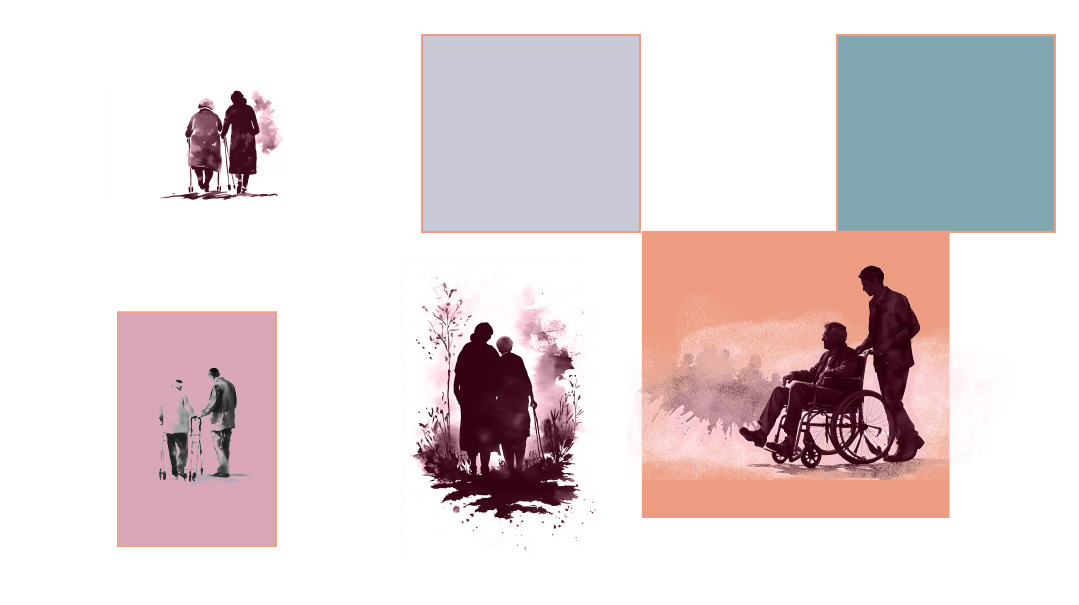When Roles Reverse
| September 24, 2024How to meet the challenges of caring for an aging parent

Your aging parents can no longer take care of themselves. Should you move them into a nursing home, hire an aide, or care for them at home? How can you avoid disputes between your siblings about your parents’ care? How can you prevent an ailing parent from driving when they insist they’re fine? Here, helpful answers to tough questions, plus powerful stories
“What will it take for you to stop driving?” Kaila Roth asked her elderly father. “A car accident, G-d forbid?”
Her father, Shalom, looked annoyed. “I don’t tell you to stop driving.”
“Your father’s fine, Kaila,” her mother, Judy, added, patting her husband’s arm. “I’ll know when he needs to stop.”
Kaila sighed. Her father was 90, her mother 85. Her father’s reflexes were slowing down and he wasn’t hearing well, but her parents were carrying on as if nothing had changed. Her father, the last Democrat in the shul, loved arguing against the Republican congregants who would roast his politics, and he was equally strong-minded when it came to deciding what he could or couldn’t do.
It was the same argument when Kaila brought up selling their colonial and moving to a condo near her with an elevator and a doorman.
Her mother got upset every time Kaila mentioned it. “That building’s for old people on their way out,” she’d say, “not for us.”
Five years passed with more clashing of opinions. Then, one day, Kaila got a call from her mother, just as she was finishing her Yom Tov cooking.
“Kaila, Tatty fell,” her mother said. There was distress in her voice, but not panic. “He’s in the emergency room now.”
Kaila’s stomach dropped. “I’ll be right there, Ma.”
On the drive to the hospital, Kaila tried to reassure herself. He might have a couple of tough weeks, but he’s going to get through this. After all, this wasn’t her father’s first fall, and he’d always bounced back.
She was in for a shock when she arrived at the hospital. She’d never seen her father in such bad shape. One eye was so bruised it looked like he’d been in a fistfight.
“He fell on the sidewalk outside the supermarket,” Judy said, pulling her daughter into a hug. “We were just trying to buy some crackers to go with my chicken liver for Yom Tov tomorrow.”
The doctors didn’t sound optimistic. “Your father suffered a traumatic brain injury and he’s going to need a long recovery in the hospital. We’re still not sure what his cognitive abilities will be when he stabilizes,” they said.
A few weeks later Shalom was still in the hospital, having made little improvement. That’s when Kaila decided to take matters into her own hands. She called her brother, Yossi, and said, “I think it’s time Tatty comes home. He’ll recover better in his own home with an aide caring for him.”
Yossi disagreed. “I think he’ll do better in a hospital with neurologists looking after him.”
They decided to seek eitzah from Rabbi Ira Ebbin of Congregation Ohav Shalom in Merrick, Long Island. After a long conversation weighing all the pros and cons, Yossi and Kaila decided to bring their father home.
“It’s been an uphill battle since then,” Kaila admits. “My father has trouble sleeping and each medication they put him on has a different negative side effect. At one point, we thought he had pneumonia, but it turned out he had a urinary tract infection and needed antibiotics. Because the nights are so difficult, we’re having trouble keeping an aide. It’s hard for anyone to stay too many days at a time because they get very tired.”
Despite the challenges, Kaila is happy with her decision to bring her father home. “He’s treated with so much more dignity at home than he ever could be in a facility. His needs are attended to immediately and his family and friends are able to visit regularly. My parents set up chairs in their driveway to watch the kids play and the neighbors are always coming over to say hello.”
Oops! We could not locate your form.






